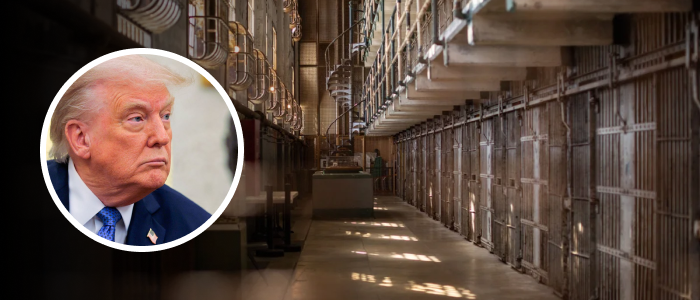SAR-I-PUL CITY (Pajhwok): Illegal migration, often driven by economic hardship and soaring unemployment, has become a perilous escape route for many Afghans. What begins as a hopeful journey towards a better life frequently spirals into a dark, treacherous ordeal — one that ends in deception, torture, mutilation, even death. In this report, four men from the village of Baghlali, on the outskirts of Sar-i-Pul City, share with Pajhwok Afghan News their harrowing journey.
Fuelled by dreams and desperation, their attempt to reach Turkey through Iran culminated in the frozen border mountain passes strewn with mutilated bodies and broken limbs. Mohammad Yasin Azimi, 25, is one of these men. Hoping to alleviate his family’s financial woes, he set out for Turkey four months ago with three relatives — Abdul Karim Bashardost, Ismael and Shawali.

Smugglers in Iran demanded $4,000 per person, promising to deliver them safely across the the Turkish border. Staring at his maimed hands and feet, Azimi recounts: “The smugglers sent a car to pick us. On the way to Maku, a town on the Turkey border, we changed routes and vehicles several times.
When we reached the border, they handed us over to Kurdish bandits instead of taking us across.” Studied up to 10 grade at school, Azimi says they were held hostage for 15 days in the snow-covered mountains, enduring relentless torture at the hands of the bandits. “They beat us day and night with sticks, belts, and thick cables—even when we couldn’t stand.
Our feet froze in the unbearable cold. We eventually escaped and were hospitalised in Iran for 40 days. I underwent two operations there, and three more after returning to Afghanistan.
All five toes of my right foot were amputated, and the front part of my left foot was removed.” Azimi explained since the smugglers couldn’t complete the journey and collect their fees, they sold the migrants to bandits for $4,000 each. The bandits then demanded $6,000 from each hostage, seeking a profit of $2,000 per person.
Now permanently disabled and the father of a child, Azimi is unable to work. His surgeries, costing around 200,000 afghanis, were paid for by friends living abroad. Abdul Karim Bashardost, 36, a father of six, had spent nearly 15 years abroad –10 in Turkey and four in Iran.
But this journey, he says, was unlike any other. “The bandits were merciless. We had no food or water in the freezing cold.
Every time we asked for something, they beat us. They placed heavy rocks on our stomachs. Two of my friends lost their toes.
I still can’t apply pressure on my toenails, and my back constantly aches,” he recalls. He adds: “If we had money to start a small business at home, we wouldn’t have taken this risk.” Ismael, 25, who studied up to the fourth grade and is also a father, lost the toes of one foot during the ordeal.
“I entered Iran legally and worked there for a month, but because of the falling value of the Iranian riyal, I decided to try to go to Turkey illegally. From the moment we were captured by bandits, it became a nightmare. They beat me so badly that my head split open.
My toes froze and had to be amputated.” His message is loud and clear: “To anyone thinking of illegal migration — don’t do it. It’s far too dangerous.
I will never try it again.” Shawali, 38, and a father of five, describes an equally harrowing journey. “They packed us into a seven-seater that plied dirt roads for over an hour.
Suddenly, the car stopped and there was shouting. When I peeked out, a bandit hit me in the head and locked me up inside. They bound our hands, feet and necks with chains.
Every night, we were forced to walk barefoot across mountains for hours to avoid detection.” Food was scarce — a single tomato a day — and beatings were a routine. “Once, they cut my ear.
Another night, they threatened to shoot one of us. We threw ourselves over him, shouting: ‘If you kill him, kill us all, we can’t return home without one another.’” He described their escape with trembling emotion.
“One night, they left us outside while they went to a shelter. I told my friends: ‘This is our only chance. If we don’t escape tonight, we never will.
’ They were afraid, but we decided to try. One of my friends broke his neck chain with a rock. We ran into the darkness.
They chased us on motorcycles, but we reached a village mosque by dawn. The villagers sheltered us and called the Iranian police, who took us to safety.” This is not a story of just four men — thousands of young Afghans are fleeing poverty and joblessness but end up in a waking nightmare.
What is meant to be a new beginning often ends in a graveyard of dreams. Experts say economic hardship, unemployment and lack of awareness about the dangers of illegal migration are key drivers of such decisions. In response, the leadership of the Islamic Emirate has issued a six-point decree aimed at combating human trafficking.
The Ministry of Interior is tasked with identifying and arresting traffickers and referring them to military courts. Human trafficking hubs are to be dismantled, with the Ministry of Defence securing borders and the Intelligence Directorate supporting investigations. According to the decree, traffickers face tough prison sentences — one year for a first offence, two years for a second, and three years for a third.
Samiullah Ibrahimi, spokesman for the Ministry of Labour and Social Affairs, told Pajhwok around 40,000 people received vocational training last year to help them join the workforce. Additionally, 114,000 work permits were issued to citizens and foreign nationals in 2024. He said the ministry was working to explore legal employment opportunities abroad, particularly in the Gulf region.
Talks are underway with Qatar, Oman, the UAE and others to facilitate this. Ibrahimi stressed the ministry remained committed to the promises held out at the National Labour Conference last year. He believes by fulfilling these commitments, Afghanistan could generate more jobs, reduce poverty and offer its youth safer and more dignified alternatives to illegal migration.
sa.
Politics

Afghan migrants — chained, beaten & tortured

Illegal migration, often driven by economic hardship and soaring unemployment, has become a perilous escape route for many Afghans.















